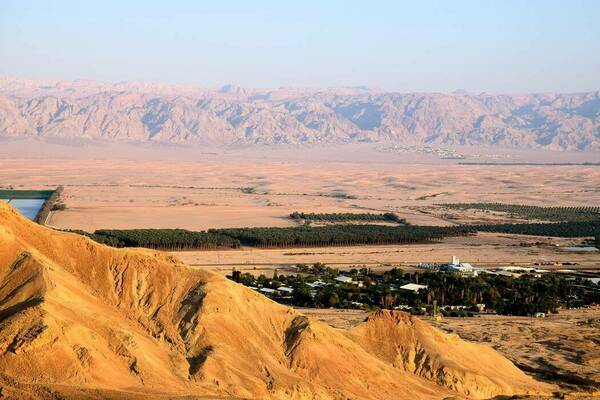
Notre Dame will host two speakers on Thursday evening January 30th, one Palestinian and one Israeli, to discuss the difference between their backgrounds and finding common ground through their experience at the Arava Institute of Environmental Studies.
“It’s wonderful to see how the Dialogue Project draws on an exploration of the environment, humanity’s common home, to bridge longstanding religious and political divides, bringing people together to work for the common good,” said Professor Mahan Mirza, Executive Director of the Ansari Institute for Global Engagement with Religion, a co-sponsor of the event. “The Ansari Institute encourages and supports this important peacebuilding work, which will have a positive and tangible impact on affected communities across the region.”
Shira Fisch and Mohammed Jarad grew up on opposing sides of the Israel-Palestine conflict, with Shira pursuing an interest in organic agriculture while Mohammed studied sustainable construction engineering in the West Bank. Their shared interest in the environment drew them both to the Arava Institute in Israel, an academic studies and research program focusing on transboundary environmental conservation and peacebuilding. Now Shira and Mohammed have embarked on a tour of the United States to share their experiences with American college students.
“The Arava Institute provides a unique context for dialogue and collaboration that continues to support alumni after they graduate in their efforts to build bridges across political and cultural divides,” said Professor Rachel Novick, Director of the Minor in Sustainability and a ‘99 alumna of the Arava Institute. “Its remote location deep in the Negev desert gives people the space to open up to new perspectives.”
Despite its remote location, the Arava Institute is an active partner in numerous environmental initiatives throughout Jordan, Palestine, and Israel, particularly with regard to water access, sanitation, solar energy, and sustainable agriculture. The Institute also facilitates the Track II Environmental Forum, which enables key civil society organizations and individuals to develop practical cross-border strategies to facilitate environmental agreements between Israel, Palestine and Jordan. When traditional (aka Track I) peace-building efforts in the region are stalled, Track II has been able to catalyze positive change on the ground.
The panel discussion will take place at 5:00pm at the Hesburgh Center for International Studies. A reception will be held in the atrium starting at 4:30pm. The event is sponsored by the Minor in Sustainability, the Ansari Institute for Global Engagement with Religion, the John J. Reilly Center for Science Technology and Values, the Ford Program in Human Development and Solidarity, and Notre Dame International.
Originally published by at sustainabilitystudies.nd.edu on January 24, 2020.